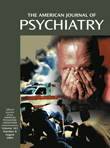The Caretaker
Last June, I was seeing a consultant ophthalmologist for a serious, chronic eye condition. It was to be my first visit with this man who enjoys a worldwide reputation. Since he is full-time at Columbia Medical School (where I teach), he maintains his office at the Medical Center Eye Clinic.
I immediately noted that the setting is very different from a midtown private office: Hispanic, African American, and working-class poor individuals represent the major clientele. Many people pay in cash. Everybody talks to each other.
I was wearing my hospital white coat when I entered the waiting room. Most seats were already filled. A 10-year-old girl flashed me a radiant smile and removed the large purse from the seat next to her. I sat down.
“You have a great smile,” I said, and she smiled even more broadly in response. She was a tomboy with a Yankees cap, pants, and sneakers.
“Are you on vacation or what?” I asked.
“I’m on school vacation one week, but my mom and I will be leaving on our real vacation in August.”
“Where’s that?”
“We are going to Arizona. We are going to see the Grand Canyon. Have you been there?”
“No,” I said. “But I flew over it and it’s very beautiful. Are you going down to the bottom?”
“Yup,” she said. “My mom and I are going by a mule. You know, you have to book a mule trip 2 years in advance. What if the plane is late? What if you change your mind?”
“Yes.”
“It’s important to get the first trip of the day—I’d hate to be riding up after dark: I’d be scared to death on the back of a mule!”
“So would I. Is it just the two of you?” I asked.
“Yes. Some of my friends have younger brothers and sisters, and they can be a real pain. Anyway, my father ran off before I was born. My mom and I are a team. I help her with her bills and stuff and translate things into English for her.”
“Good for you. I guess she is the patient today,” I said pointing at the doctors’ offices.
“She went with me to the pediatrician, but he said I’m as healthy as a horse. So today I’m going with herto the eye doctor.” She paused. “You are the patient today too?”
“Yes, I am.”
She paused again. “I’m Rosita Castro. We are Cuban Americans, but I say American Cubans!” She reached out a hand and I shook it.
I should say that Rosita was on the move in her chair during our entire conversation—on her knees, or sitting back, or leaning up close.
“I guess that your mom is being seen now.”
“Yes. She had to have a transplantation of the cornea. That’s quite a serious operation.”
“I know it is. What happened?”
“Some crazy lady in our building threw bleach in her face. It was lucky it was a Saturday because I was home and could take mom to the E.R. It was the worst day of my life.” Her eyes teared up for the briefest moment. “But she will be fine by August.”
At this point an ophthalmology resident led a young woman out by the hand and brought her over to us. She could not have been more than 30, very thin, and was wearing black glasses. Rosita got up.
“Do you need me to ask the doctor anything, Mama?”
“No,” she replied.
Rosita said, “This is my new friend, Doctor…um…um…”
“Dr. Druss,” I said. “You have a wonderful daughter. You must be very proud of her.”
“Si, si,” said Mrs. Castro and smiled her daughter’s beautiful smile. Rosita took her by the hand and led her out of the waiting room.
“Dr. Druss—you’re next,” said the nurse.
I am just a wee bit sheepish admitting that the half-hour conversation with this little girl had been more helpful to me in calming my jitters than to her. After all, I am seven times her age, an experienced physician, and a senior psychiatrist.
Perhaps one is never too young to teach courage by behavior and example—or too old to acquire a bit of it.
Address reprint requests to Dr. Druss, 180 East End Ave., New York, NY 10128.



